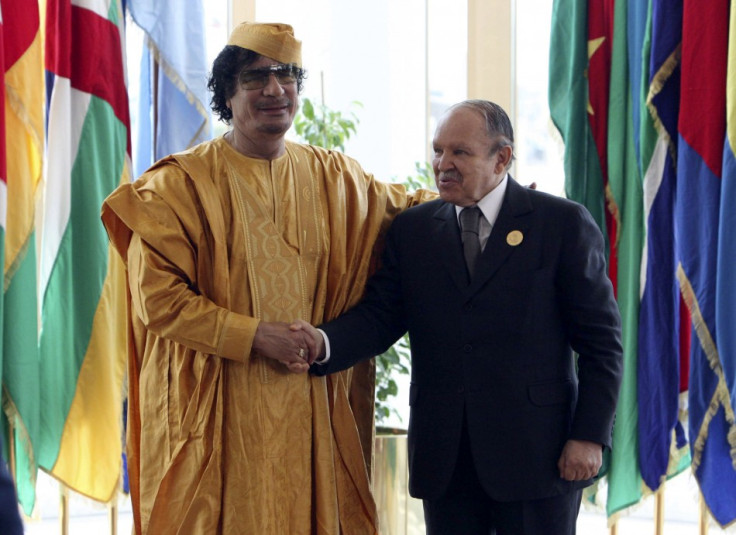Libya: Algeria accused of supplying Gaddafi once again

Over the week end, Algeria was forced to deny charges that a Libyan ship offloaded weapons for Muammar Gaddafi's troops at one of its ports.
"The foreign ministry denies categorically these allegations," the official APS news agency quoted a spokesman for the foreign ministry as saying late on Saturday.
Libyan opposition sources said the ship, sailing under a Libyan flag, arrived on July 19 at the port of Djen Djen, from where the cargo was being taken over the border into Libya.
The rebels, Transitional National Council and Nato forces are growing increasingly frustrated at the leader's refusal to step down from power. Despite months of conflict, Gaddafi is still fighting back and last week, a massive pro-Gaddafi demonstration was held in Sirte, his birthplace.
These comments created concern in the United States, and Washington urged Algeria that if it was aware of the shipment, to stop it from reaching the regime's forces.
Soon after the allegations emerged, a U.S. State Department official has been quoted telling Reuters: "The United States government is working to ascertain the veracity of these claims, which have only just come to light."
Then on Friday, another State Department official this time said that the United States was investigating reports that "a ship carrying weapons for Libyan leader Muammar Gaddafi's forces was allowed to dock in Algeria, which would be considered a violation of U.N. resolutions."
"We have heard reports that a ship carrying arms to Gaddafi's regime was recently permitted to dock in Algeria and that these weapons are currently being transported overland into neighboring Libya," the State Department official told Reuters.
"If true, this would likely constitute a violation of U.N. Security Council Resolutions 1970 and 1973."
The United States this month formally recognized the rebel National Transitional Council as the legitimate interim government of Libya and has called on Gaddafi to step down.
"The government of Algeria has told us on numerous occasions, and has stated publicly, that it has strictly adhered to all (U.N. Security Council resolutions) regarding the Libyan conflict," the State Department official said.
"We call on the government of Algeria to continue stringent enforcement of these resolutions and, if aware of this particular shipment of arms, to ensure that it does not reach Colonel Gaddafi's forces."
In the past months, Algeria had also been accused of sending troops to support the Gaddafi forces, allegations that the Bouteflika government has always vehemently denied.
It seems however rather strange for the country to be accused of supplying Gaddafi with weapons as it has in the past, reiterated its fears that the chaos inside Libya, and the large quantities of weapons circulating there, could be exploited by Al Qaeda's North African branch, Al Qaeda in the Islamic Maghreb (AQIM).
At the time, a senior Algerian security source told Reuters convoys of pick-up trucks carrying weapons had been crossing the border from Libya to Niger, and from there to northern Mali where AQIM has bases in the desert.
"To control this proliferation of weapons will require the cooperative efforts of all involved and I have been encouraged to note the meetings that have occurred between Algeria, Mauritania, Mali and Niger," said Ham.
Following these allegations, it later emerged that both Qatar and France had supplied the rebel fighters with arms and were never accused of breaching the arm embargo by either the U.S. or the U.N.
© Copyright IBTimes 2025. All rights reserved.





















